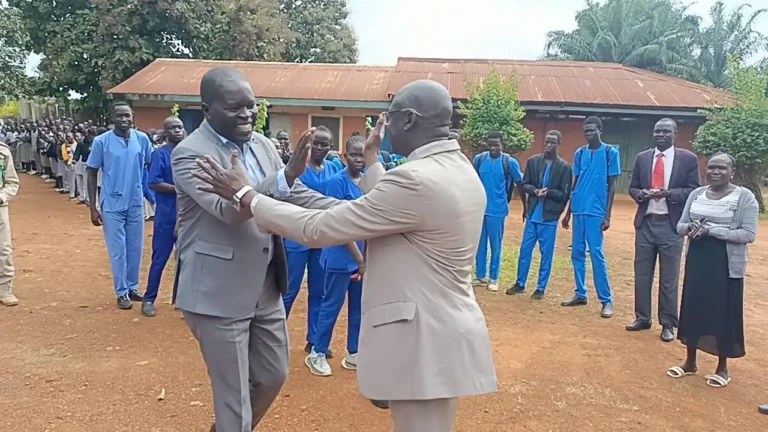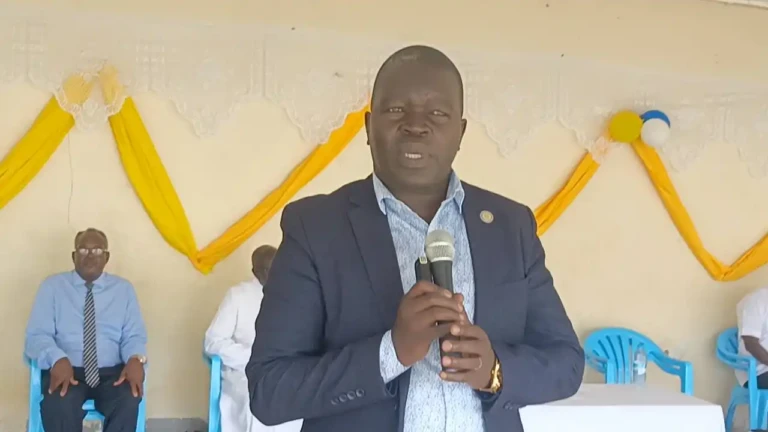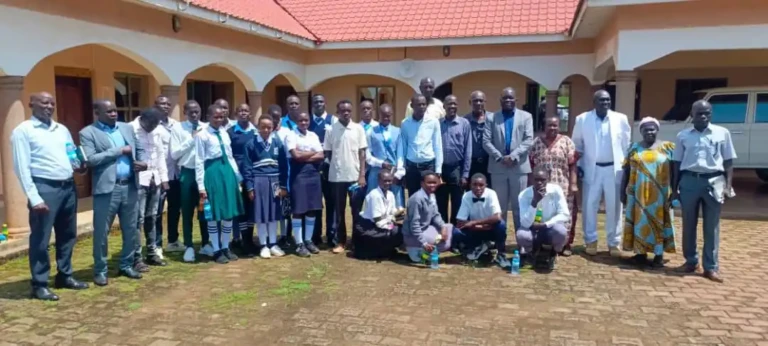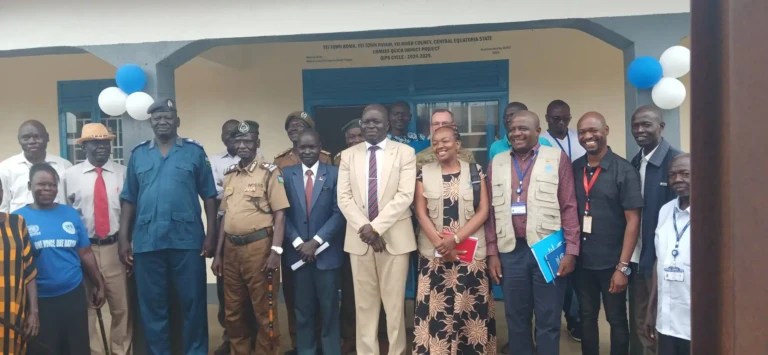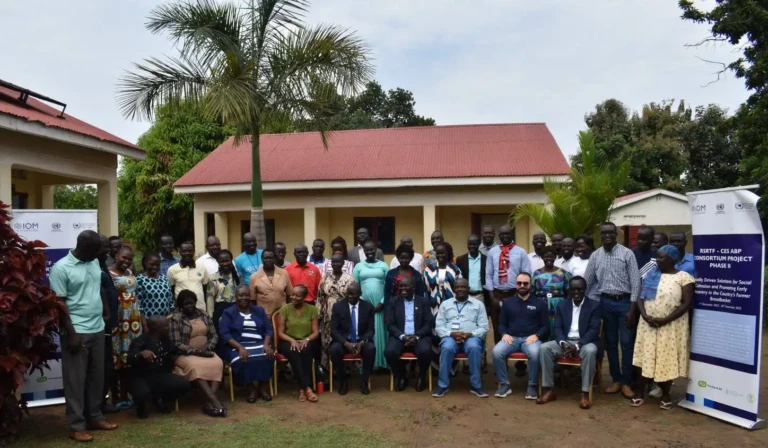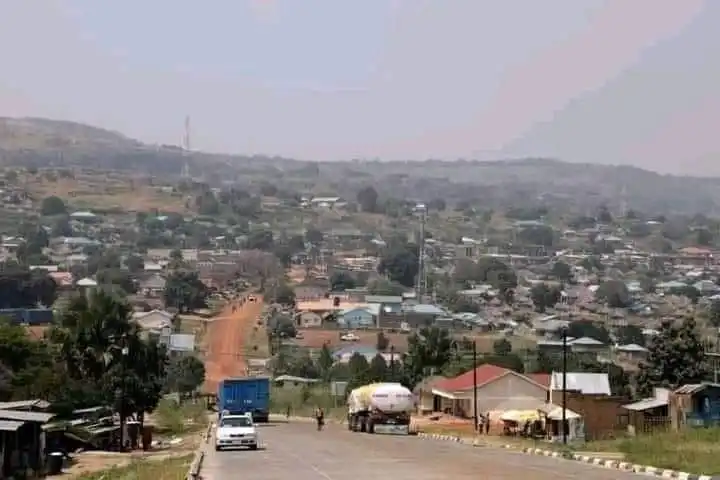
Kaya Boma in Morobo County. Despite the risks, many in Morobo remain hopeful that peace is still possible/Photo: VOA
(MOROBO) – Residents of Morobo County in Central Equatoria State have issued urgent appeals for peace, warning that persistent insecurity is threatening food production, local trade and the fragile recovery of a community still reeling from years of conflict and displacement.
Morobo County is located on the southern border with Uganda and the Democratic Republic of Congo and forms part of South Sudan’s fertile greenbelt acting as a vital breadbasket for both Yei and the national capital, Juba.
Known for its productive agricultural zone where maize, cassava, sorghum and bananas are grown, the county’s economy is heavily reliant on subsistence farming. However, escalating violence in recent months has severely disrupted agricultural activity and daily life.
Since the beginning of 2025, residents have reported frequent attacks, abductions and destruction of property. These incidents have led to fresh waves of displacement, forcing many to flee once again into neighbouring Uganda and Congo. The violence has also made access to farmland dangerous, affecting the livelihoods of thousands of smallholder farmers.
“We want peace and stability so that we can go to our farms, travel to Yei for business, and access services in Uganda,” said Aligo Moses, a resident of Morobo. “Because of insecurity, people are going back to refugee camps in Uganda and DRC.”
Aligo’s worries are similar to Monika Galaka Timon’s, another local who urged leaders to choose dialogue over violence.
“War is bad. It destroys us. But peace is good because it unites us. Let our leaders work for peace and stability,” she said.
Monika added that women and children are particularly vulnerable in times of conflict, noting that peace is essential for families to rebuild and communities to develop.
Satimon Bidali, a farmer from the area, warned that unless security improves, widespread hunger may follow.
“Displacement means farmers can’t concentrate on their work. If this continues, Morobo will face a serious hunger crisis,” he explained. He called on political and military leaders to prioritise peace so that communities can resume agricultural work.
Key Challenges Facing Morobo County
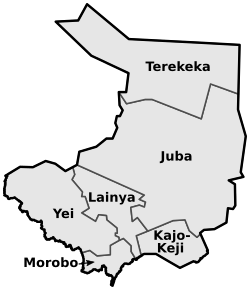
| Category | Details |
|---|---|
| Population (2020 projection) | 104,106 |
| Main Livelihood | Subsistence farming, small scale trade |
| Common Crops | Maize, cassava, bananas, sorghum, groundnuts |
| Land Access Issues | Caused by insecurity, landmines and displacement |
| IDPs in County | 2,495 |
| Returnees | 7,564 |
| People in Need (2020 HNO) | Approx. 81,200 (78% of population) |
| Daily Food Consumption | Many households report one meal per day |
| Livelihood Risk | High – farmers lack secure access to land and tools |
Morobo County shares borders with Uganda and the DRC and plays a crucial role in regional trade and migration. Its porous borders, however, have also made it vulnerable to the movement of armed groups and smugglers. The strategic location, combined with disputes over border demarcation and past militia activities, has contributed to long-running instability.
Although Morobo had remained relatively peaceful during the early years following South Sudan’s independence in 2011, conflict returned sharply in 2016. Since then, clashes between government forces and opposition factions, including the National Salvation Front (NAS), have increased. While NAS is not a signatory to the 2018 peace agreement, it continues to operate in parts of Central Equatoria, including Morobo.
The county is also severely affected by landmines and unexploded ordnance, further hindering access to farms, clinics, and schools. According to the United Nations Office for the Coordination of Humanitarian Affairs (OCHA), Morobo has some of the highest levels of explosive remnants of war in South Sudan. These hazards have made humanitarian operations dangerous, with aid workers frequently targeted or attacked.
In one tragic incident in 2019, three staff from the International Organization for Migration (IOM) were killed near the border while monitoring for Ebola. Such violence has had a chilling effect on both humanitarian and cross-border health monitoring efforts.
Morobo experiences a tropical savanna climate with high rainfall between April and October. This seasonal pattern normally allows for two planting and harvesting cycles per year. However, without secure access to land and support services, farmers are unable to fully benefit from the favourable climate.
Basic infrastructure such as roads, schools, and health facilities remains poor, particularly in rural areas. Years of neglect and destruction during conflicts have left much of the county under served.
A 2018 REACH assessment found that while 88 percent of the population had access to markets, 100 percent relied on food aid at the time, and half the households owned livestock. Nonetheless, nearly half were classified as food insecure due to conflict and poor infrastructure.
Editor’s Note: Additional context and reports by UNMISS, FEWSNET, Cordaid and OCHA South Sudan.
Discover more from Access Radio Yei News
Subscribe to get the latest posts sent to your email.

